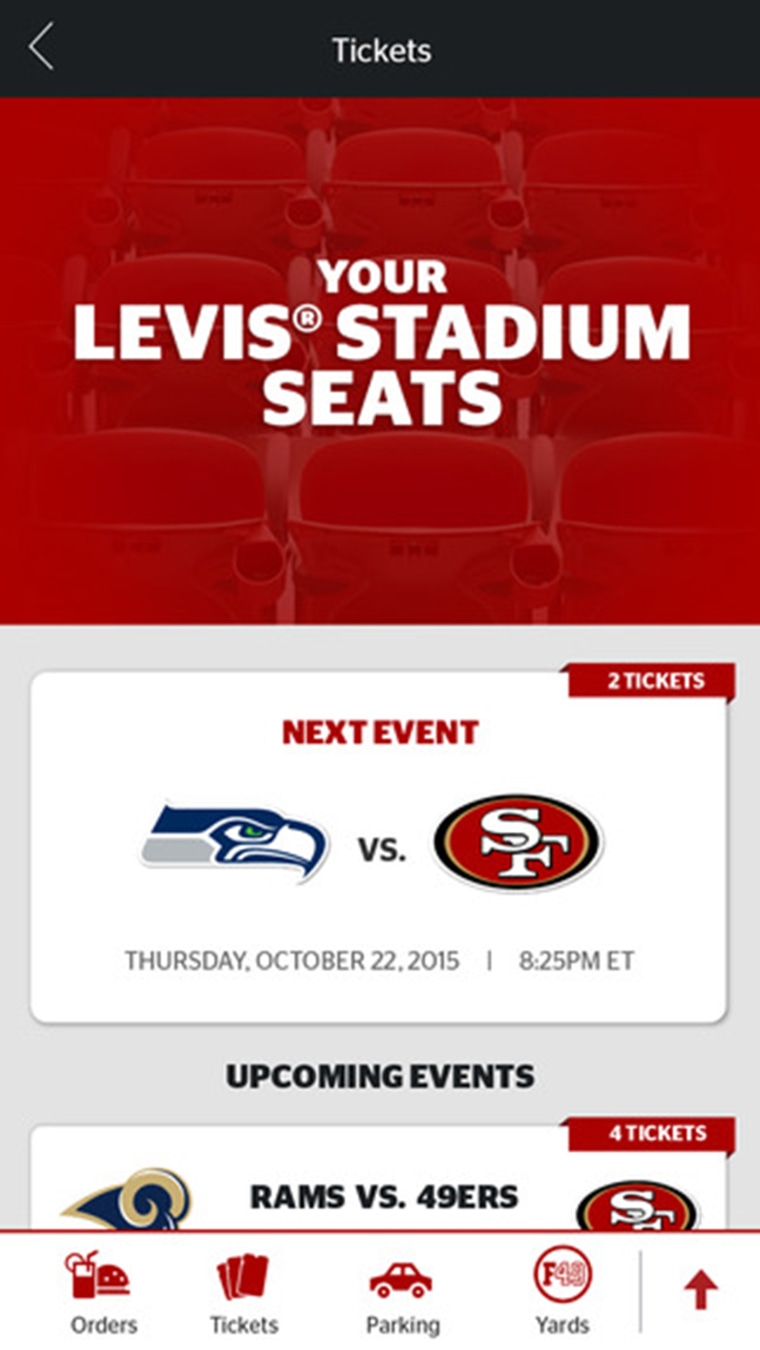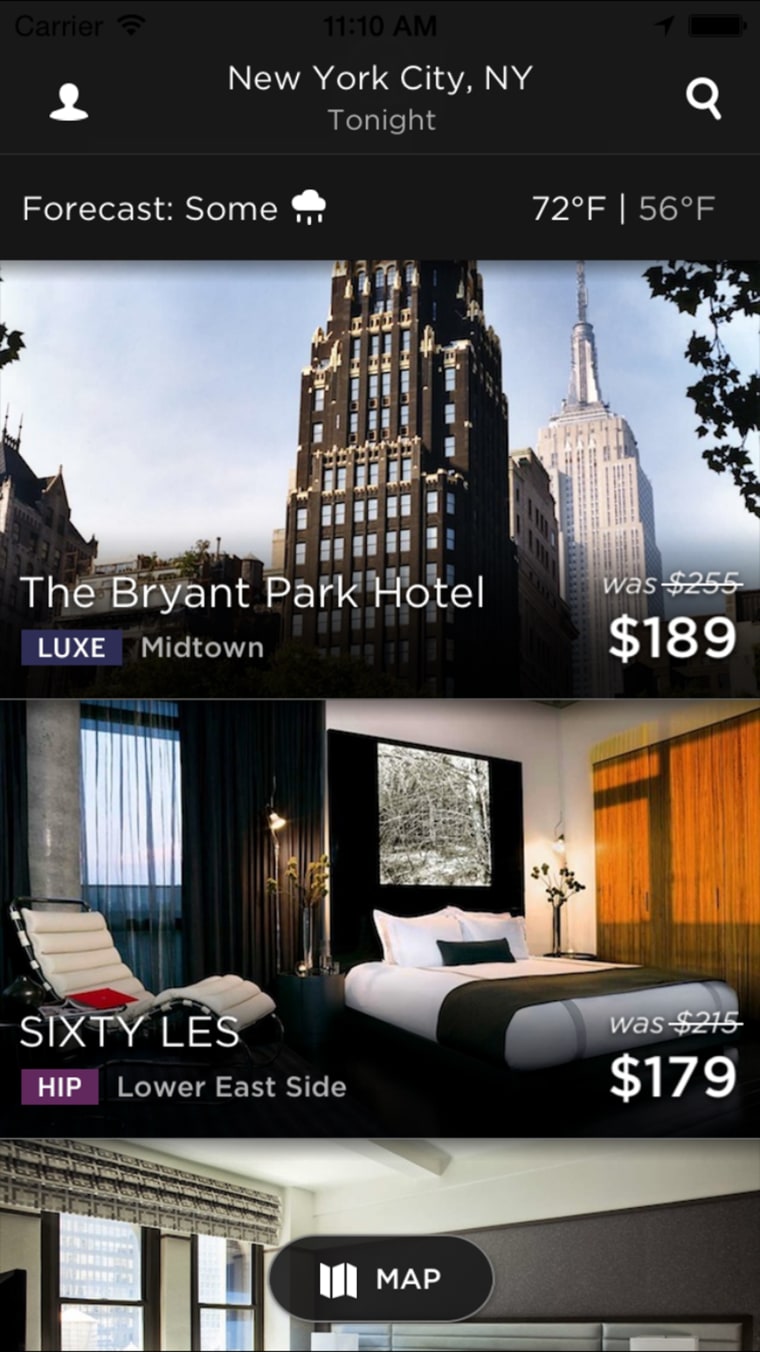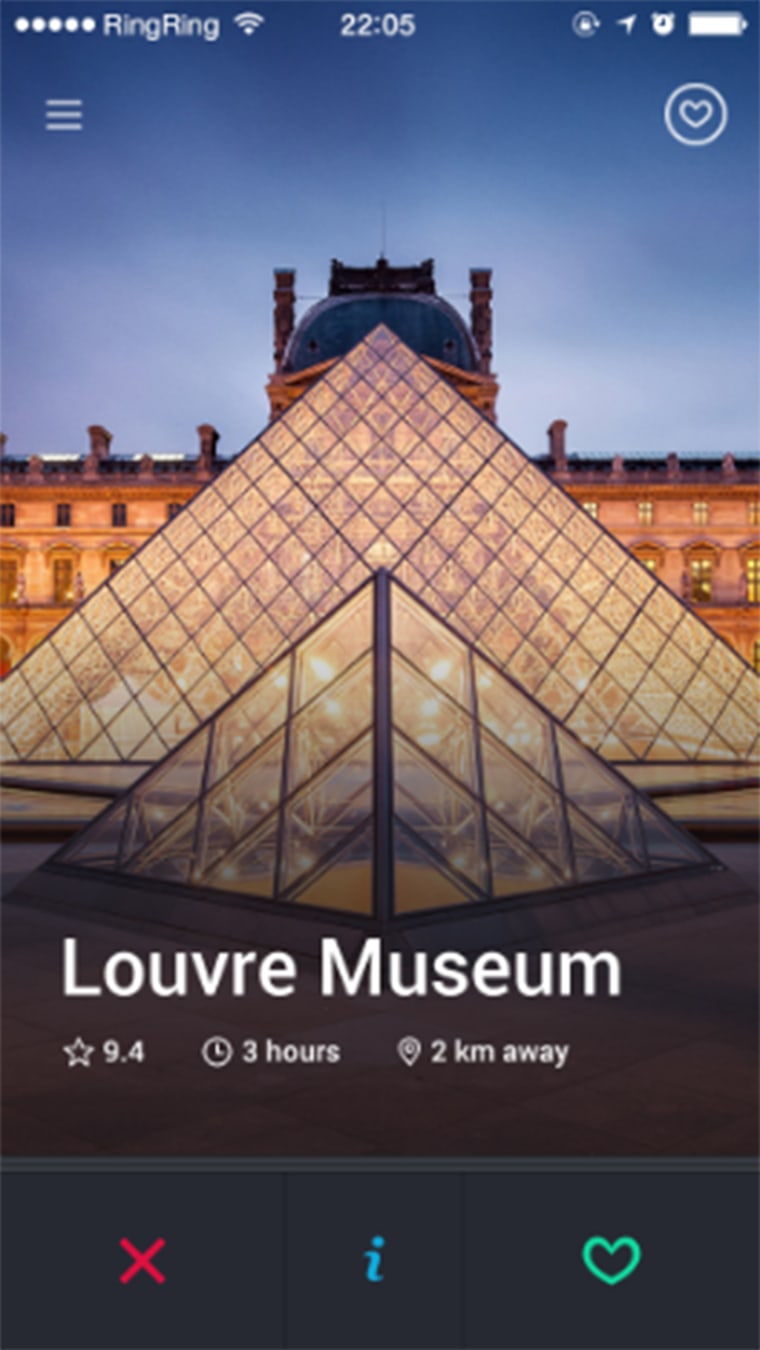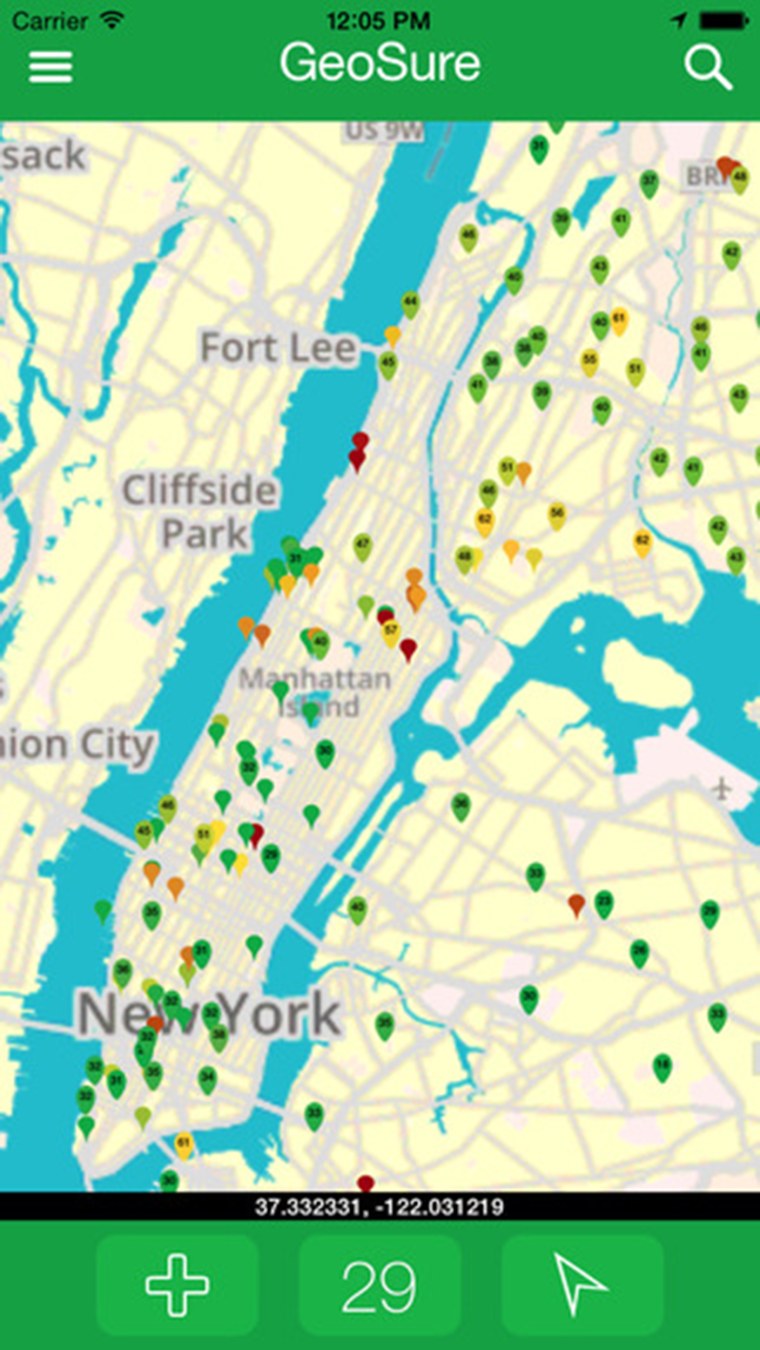Location, location, location. It’s not just for real estate transactions anymore. From finding getaways just outside town to avoiding civil unrest in foreign lands, innovative travel apps are giving smart-phone-toting travelers inside information with a tap and a swipe.
“What travelers want is contextually relevant information and the most relevant information has to do with location,” said Norm Rose, president of Travel Tech Consulting. “'I’m here now and I want to do X. Give me information about that.’”
The makers of apps and mobile-only websites are not only tapping into that but then layering on features that promote personalization, social content and spontaneity.
“You watch people walking on the sidewalk and their phones are the center of their lives,” said John Paul, CEO of VenueNext, which is developing apps for people attending live events. “It’s how they get information, interact with others and find their way around.”
The travel industry has clearly taken notice. According to Douglas Quinby, vice president of research for Phocuswright, purchases of travel on mobile devices in the U.S. totaled $16 billion last year, 11 percent of the $144 billion online-travel market. That’s forecast to rise to 18 percent in 2016.

Most of that, of course, is earned by major industry players, such as airlines, hotels and online travel agents. (It also includes purchases on tablets and mobile websites.) But for innovative approaches that facilitate discovery, discounted prices and richer travel experiences, travel apps that utilize geo-location technology often lead the way.
Consider the Levi’s Stadium mobile app, which VenueNext created for the San Francisco 49ers new stadium. Designed to ease what Paul calls the “pain points of attending live events,” the app uses geolocation software to provide in-seat food delivery and tools to find stadium facilities.
The latter even includes a color-coded system that tells users how long the lines are at nearby food outlets and restrooms. “Before, you never knew how crowded the bathroom was until you got in line,” said Paul. “Now you can see your options; maybe you want to walk a little farther to one that’s not so busy.”
Long Lines at JFK? Airport Now Tracks Phones to Find Out

It appears to be working. According to Paul, 30 percent of fans in the stadium use the app during an average game. The company announced last week that it would roll out a similar product at Amway Center, home court for the Orlando Magic, for the upcoming NBA season.
Geolocation also underpins the latest additions to HotelTonight, the mobile-only service that offers last-minute discounts on hotel rooms in major cities. Noting a user’s location, the app offers “Escapes” -- deals on hotels within driving distance - for quick getaways from select cities, and in-town “GeoRates,” which are visible only to guests whose phones indicate they’re within a few miles of the hotel.
During a recent Internet day-of-stay search for Seattle hotels, for example, the best rate on the Alexis hotel was $265. The non-GeoRate on HotelTonight was $189, while enabling geolocation brought it down to $171.
“It’s about helping people be spontaneous and giving them the control and flexibility to book on demand,” said HotelTonight CEO Sam Shank. “And because they’re getting a discount, they’re more motivated to take advantage of it.”

Geolocation also facilitates local discovery. The GoDiscover app (Android only), for example, lets users peruse photos of nearby attractions, swiping right to save the ones they’re interested in (or left to discard), and then aggregating the results to create a route for efficient navigation. It’s like Tinder for travel, without the shallowness or morning-after regrets.
Traveler safety is another area where geolocation can provide valuable information. That’s the premise behind GeoSure, an (iPhone-only) app launched earlier this year. Aggregating data from hundreds of sources, including the United Nations, Centers for Disease Control and local databases on crime and other hazards, the app rates destinations on six safety and security categories and assigns each one a “Threat Temperature.” Adelaide, Australia, for example, scored a “Cool and comfortable” 21 in a recent check while Freetown, Sierra Leone, was a “Scorching” 100.
How Apps Are Transforming U.S. Trucking
Users can also provide on-site reports, augmenting official sources with local updates. “The goal is to be extremely location-based, down to the street corner,” said CEO Michael Becker. “Say you’re in Khartoum and something happens a few kilometers away. You’ll get a notification of it and can make decisions accordingly.”

At this point, many of the newer travel apps and mobile-only websites are works in progress.
GeoSure, for example, is still light on user-generated reports but is working to augment its reports with breaking news and other sources of “unstructured data.” At VenueNext, they’re working to base in-seat food delivery not on patrons’ seat numbers, but by the geo-location signal sent by their phones. (Presumably, they’ll wait outside if you’re in the restroom.)
“More than anything else, the phone is an opportunity for (companies) to put the traveler in control of their own experience,” said Phocuswright’s Quinby. The goal is “to empower the traveler to have the experience they want to have.”